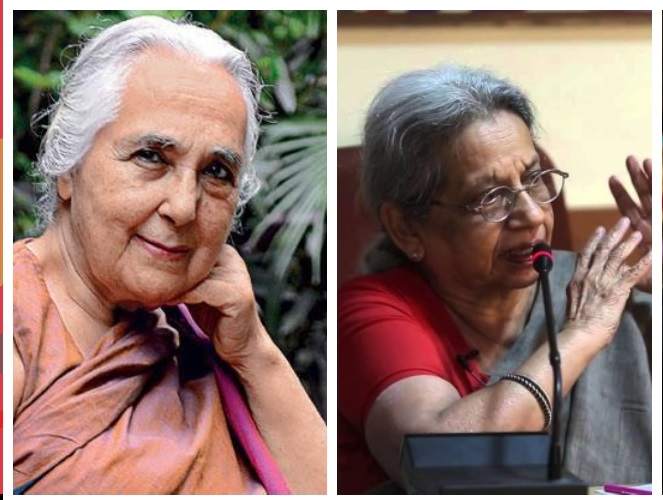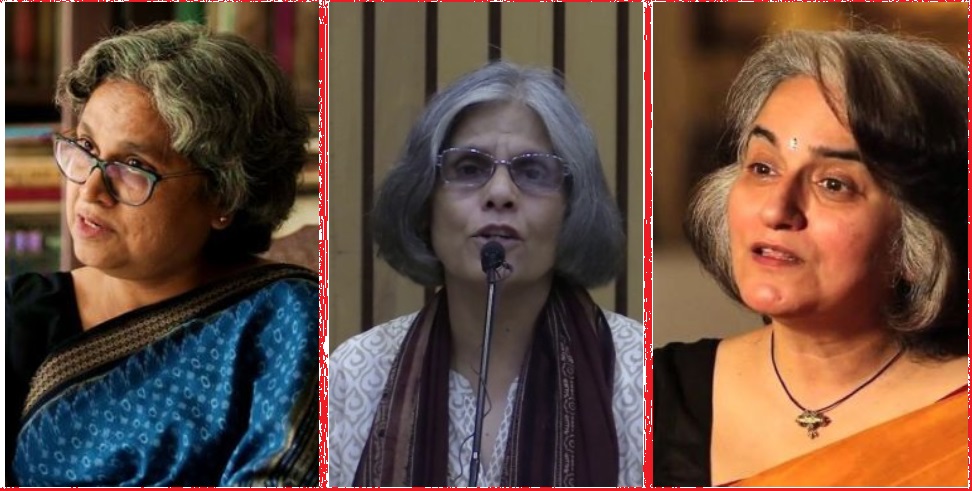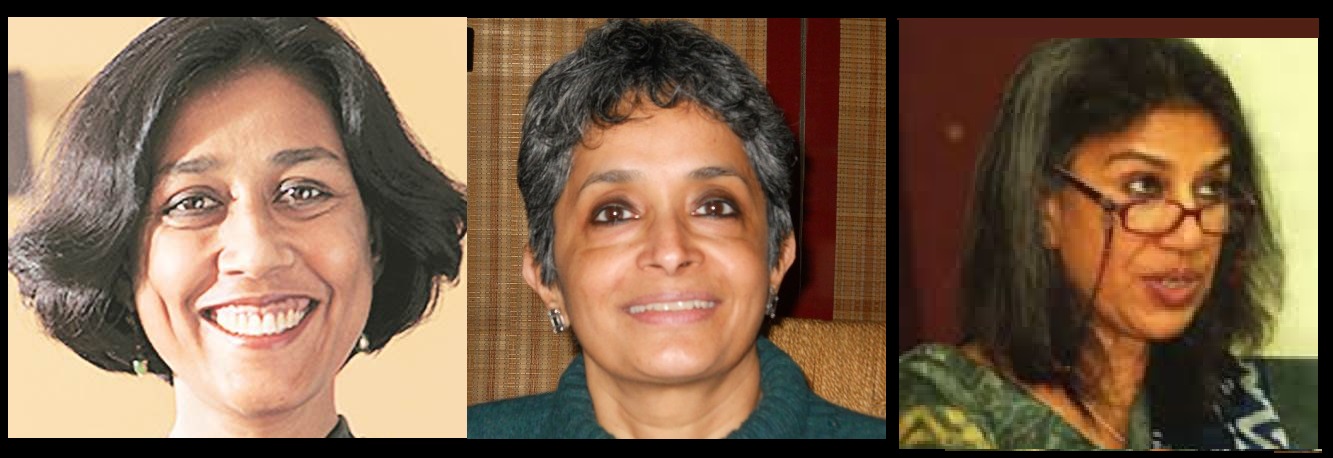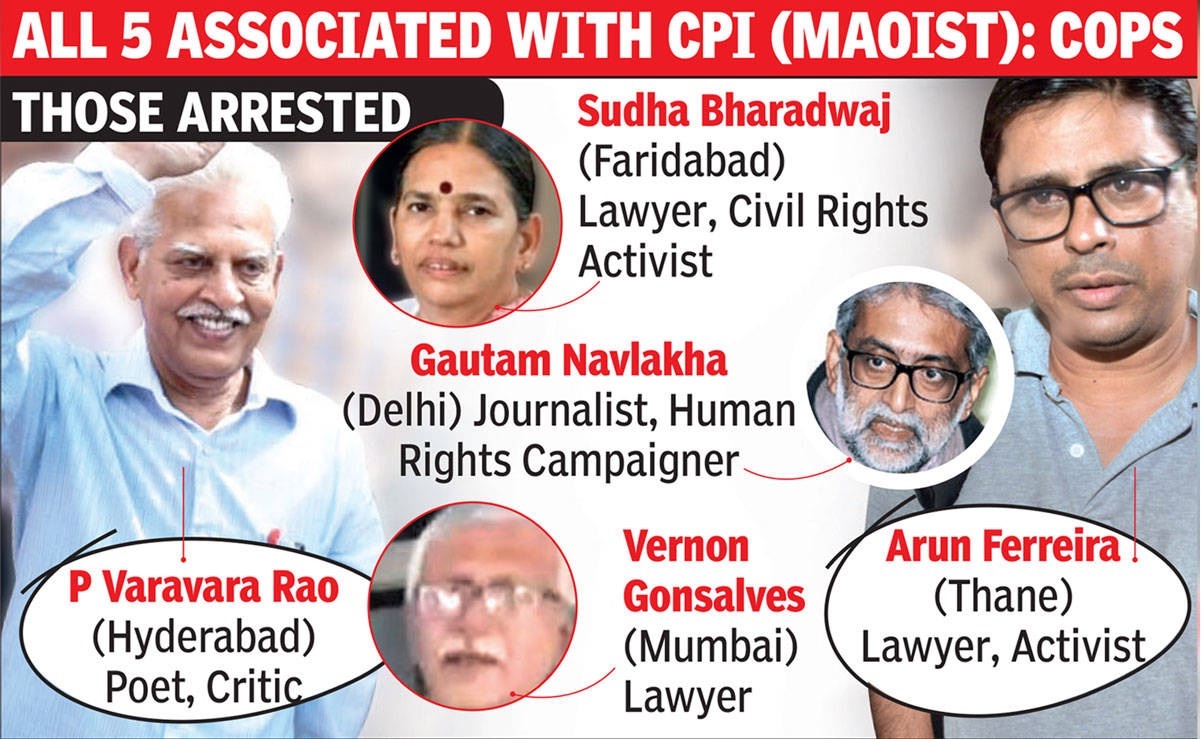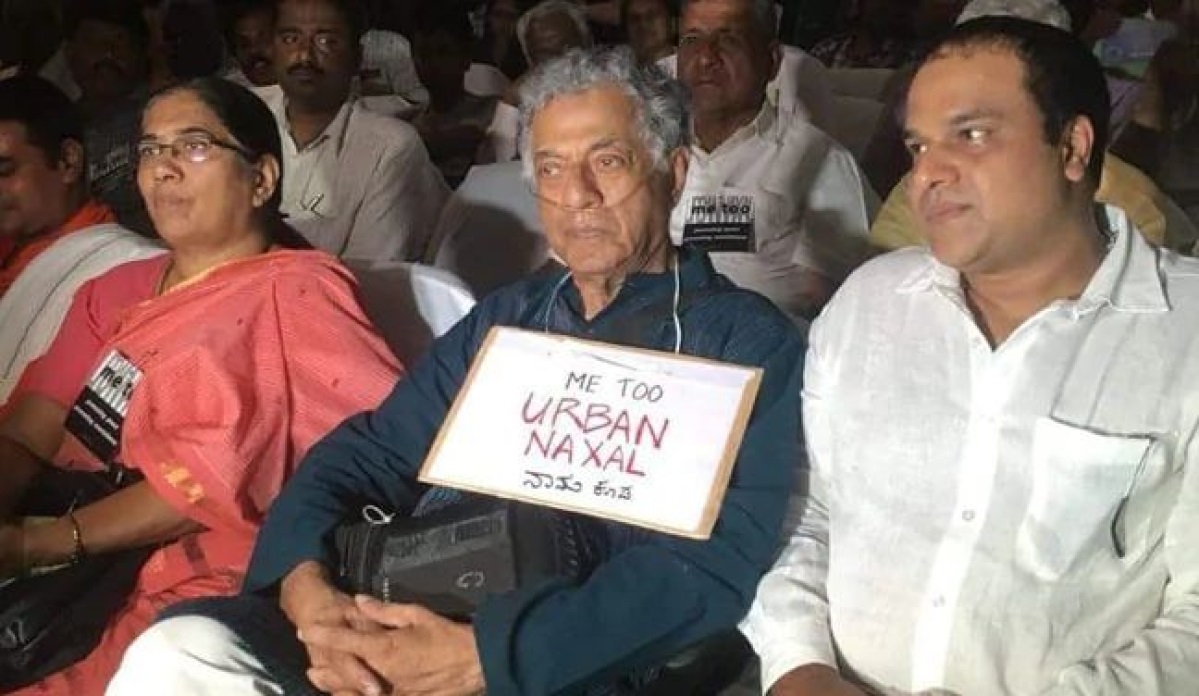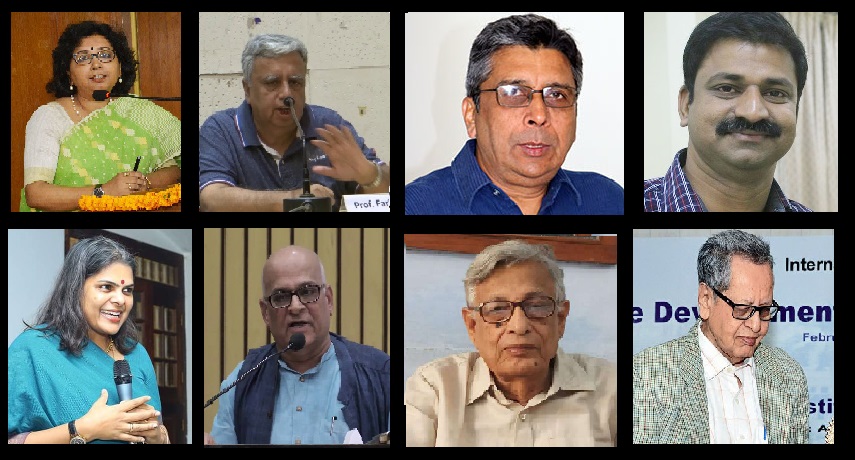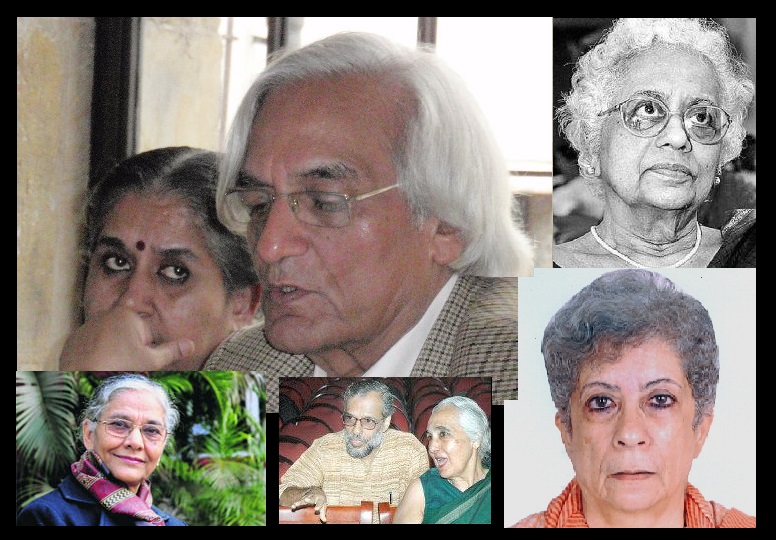The 2023 – NCERT Controversy and the Left –all-out attack in the name of secularism, science and pedagogy – 250 signatories letter shot! (2)
What Jamia Milia Islamia to do with NCERT?: In addition to the external experts, the NCERT also held consultations with 16 CBSE-nominated schoolteachers from various disciplines, the minister’s reply suggested. This newspaper on Wednesday wrote to Saklani, the NCERT director, asking on what basis the experts had been selected for the consultations, and why the original writers were not consulted. Saklani did not respond to these two specific questions but said the expert committees had thoroughly examined the content and recommended removals uniformly (across subjects) “without any selective approach”. Neshat Quiser, a retired professor of sociology who taught at the Jamia Millia Islamia, told this newspaper: “I don’t know if the NCERT invited the scholars who wrote the sociology books while revising the existing books. It would have been good to have a lively academic discussion with them for a better understanding before the revisions were undertaken.” Yadav said that when these books were first written, the NCERT had subjected them to multiple layers of scrutiny.
Who can decide about pedagogy and their burden – historians or school teachers?: There were chief advisers and a team of authors who were experts either on the subject or on pedagogy. The advisory committee for the textbooks in the social sciences was headed by the late Hari Vasudevan, then professor of history, Calcutta University. There was a national monitoring committee, co-chaired by eminent academics G.P. Deshpande and Mrinal Miri, that vetted all the textbooks for accuracy and appropriateness. “Any revision of these books must go through a similar rigorous process,” Yadav said. While writing and approving the book Politics in India Since Independence, special caution was taken to ensure factual accuracy and political neutrality since it covered sensitive topics, Yadav said. The book was reviewed by leading scholars in the social sciences such as Sunil Khilnani, Mahesh Rangarajan and Ramachandra Guha before it went to the national monitoring committee.
Revision has been going on for many years: As for the NCERT giving no explanations for the individual deletions, Yadav contrasted it with the transparent way an expert committee had removed cartoons from a political science textbook a decade ago. In 2012, after a controversy had broken out over these cartoons — some of them deemed derogatory to Babasaheb Ambedkar — an expert committee was set up under Sukhadeo Thorat, then chairperson of the Indian Council of Social Science Research. Yadav said the committee had called the authors of the book, the advisers and a wide range of political scientists and sought their views. “We were called and gave our views even though Prof. Palshikar and I had already resigned as chief advisers. We disagreed with the committee, but the committee gave reasons for its recommendation for the deletion of certain cartoons,” Yadav said. “But during the repeated revisions these books underwent since 2014, we were never consulted.
The authors have no say about the syllabus, portions etc: As far as I can tell, none of the authors has been involved in this process. “We don’t know, for example, the reasons for dropping the content on the Gujarat riots while retaining the content on the anti-Sikh riots, or the reasons for dropping facts about the ban on the RSS after Mahatma Gandhi’s assassination.”[1] Rajmohan Gndhi condemned about the deletion of Gandhi[2]. Yadav said that textbooks should be open to correction if they contain factual inaccuracies or anything inappropriate. He wondered what reasons there could be for the latest deletions. “The best explanation can come from those who decided to delete them,” Palshikar said. This newspaper contacted some of the experts consulted for the revisions. Kadam declined comment. “We don’t have the mandate to go out in public, to the press,” he said. Bhatt, speaking on Saturday afternoon, said: “Call me after three days.” Khobung and Pandey did not answer phone calls and are yet to respond to emails.
The ‘histories’ are widely circulated today through WhatsApp and other social media applications: A group of historians has raised concerns over the NCERT’s move to delete certain topics from history books for CBSE students. In a statement on Friday, they said they were “appalled” by the NCERT’s decision to delete the topics, particularly for Class 12, and called the move “a matter of deep concern”. The signatories of the statement include Romila Thapar, Jayati Gosh, Mridula Mukherjee, Apoorvanada, Irfan Habib and Upinder Singh, among others[3]. The other signatories included professors from Delhi University (DU) and its affiliated colleges, Jawaharlal Nehru University (JNU), Jamia Millia Islamia, Aligarh Muslim University (AMU), and Ambedkar University, among others.”By reducing the study of history to such monolithic accounts, the ground is being prepared for pseudo-histories, especially of a communal and casteist variety, to hold sway. In any case, such ‘histories’ are widely circulated today through WhatsApp and other social media applications,” the historians said, alluding to an alleged attempt to insert politics in education[4]. As for at the propaganda is concerned, the Communists of all the categories cannot be beaten, as they have been the masters in such subject matter.
How the pedagogy of science and history differ?: The media has been biased in telling the truth, particularly, during the prevailing conditions. Here also, first the objection is given importance and circulated as main news. The clarification gien by the NCERT has not been given any importance[5] relegating to background. The details given in their wesite also have not been read by many[6]. Thus, the readers are made or forced to read the objection first and forgetting the accused and hearing to him / her. Thus, they are not bothered about, “audi alteram partem,” just try the target, accuse, make him accused and hang. No principles of natural justice etc., you can sit as a judge, a lawyer, witness and all, decide the case and pass judhgment also. Here, also the difference between “Science” and “history” can be noted. By reducing the syllabus, the teachers, professors or students are not so worried as overanxoys exhibited by the historians, who claim that they used to work with scientific temper and following scientific methodology.
Why the Left always carry out such propagandist attacks?: Without reading, many groups have also starting condemning and manufacturing news. Thus, evidently, they (media) continue to support their ideological friends, historians and history writers who continue to divide Indians on some reason. To cite one example, the whole fight of their acrimonious, spiteful and antagonistic attitude, verbose and arguments againt “Temple” has been tested at the Courts and proven wrong. Ironically, their own collegues have been censured by the Court for deposing and giving false evidences. Yet, they continue to suppress the facts and pose as saviours, protectors and redeemers of history, historiography, historiosophy, etc. Now they are worried about the Schools text books, syllabus, burden, pedagogy etc. At the University and college levels, they could not produce students with discipline, decency and decorum. They could not inculcate any tinge of patriotism, nationalism and devotion to their own country, but, always take every chance to criticize, blame and abuse their own county, that too, at the cost of supporting the countries that harm India and Indians. Thoroghout the world, perhaps, only in India, Indians could talk ill of their country under the guise of freedom of thought, right, opinion and so on. With all these proven credentials, they want to interfere with schools, school syllabus, portions etc., Why cannot they concentrate with their academic activities? Why can not they teach their students properly and make them good, honest and faithful Indians?
© Vedaprakash
10-04-2023
[1] Indian Express, Rajmohan Gandhi writes on textbook deletions: You can’t delete Gandhi’s truth, Written by Rajmohan Gandhi, Updated: April 8, 2023 16:59 IST.
[2] https://indianexpress.com/article/opinion/columns/rajmohan-gandhi-textbook-deletions-mahatma-gandhi-8542909/
[3] NDTV, “Histories Circulated On WhatsApp”: Historians On NCERT Textbook Move, India News, Reported by Saurabh Shukla, Edited by Anisha PrakashUpdated: April 08, 2023 9:40 pm IST
[4] https://www.ndtv.com/india-news/histories-circulated-on-whatsapp-historians-on-ncert-textbook-move-3931925
[5] List of Rationalised Content
- List of Rationalised Content – Class 6
- List of Rationalised Content – Class 7
- List of Rationalised Content – Class 8
- List of Rationalised Content – Class 9
- List of Rationalised Content – Class 10
- List of Rationalised Content – Class 11
- List of Rationalised Content – Class 12
By clicking each, one can download the booklet and read the rationalization carried out in each subject for the respective classes.








